Graham Reid | | 4 min read
Roky Erickson: I Have Always Been Here Before
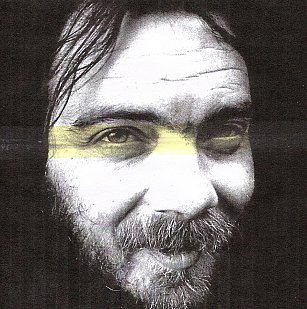
The pleasure of seeing Roky Erickson when he came to New Zealand is 2012 was that he was Roky Erickson, and he was in New Zealand.
Just a few years before, given Erickson's damaged mental state, few would have counted on that happening. As a friend said a week out from the show, "I'll buy a ticket when I know he's on the plane".
Having just interviewed Erickson I said, "maybe you should wait until he gets off".
Erikson is one of the sadder casualties in music and his story of drugs in the late Sixties, schizophrenia, time in a mental hospital where he endured electric-shock therapy, a drug conviction on release which lead him back to another mental institution for more shock therapy (he'd pleaded insanity to the charge of marijuana possession to escape jail) and so on has been recounted.
What is less often injected into the story is the music. The reissue label Charly out of the UK did the excellent reissues of the albums by Erickson's band 13th Floor Elevators (see here) and now the estimable Light in the Attic (as with Charly, available in New Zealand through Southbound) is doing the same with the albums Erickson's own name.
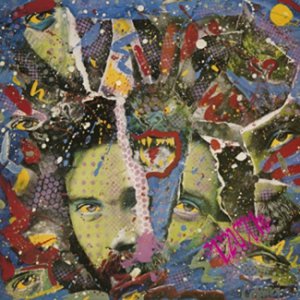 LITA pick up his first three from the early to mid Eighties, The Evil One (produced by Creedence's Stu Cook), Don't Slander Me and Gremlins Have Pictures (a collection of live material and various studio-finished songs which hadn't appeared on the previous two albums).
LITA pick up his first three from the early to mid Eighties, The Evil One (produced by Creedence's Stu Cook), Don't Slander Me and Gremlins Have Pictures (a collection of live material and various studio-finished songs which hadn't appeared on the previous two albums).
The Evil One was originally titled and credited to Roky Erickson and the Aliens when it came out on CBS in '81 (and disappeared overnight after Erickson's incomprehensible interviews) and this is the Erickson that hard-core fans and the curious want to hear.
It opens with the scouring garagerock Two Headed Dog then goes into Erickson's brilliantly reductive garage-pop classic I Walked with a Zombie (which are just about the complete lyrics incidentally).
Obsessed by cartoons, B-grade horror flicks, aliens and the Bible, Erickson created music that was thrashy, trashy and often a lot of fun. And sometimes just downright weird. But it is also an exciting, treble-heavy minor classic because of Erickson's desperate vocals, the razorblade guitar work of Duane Asiaksen and the unsual inclusion of Bill Miller's electric autoharp (which Erickson was insistent upon).
Just a glance at the Zappa-like titles on The Evil One give you a clue: Night of the Vampire, It's a Cold Night for Alligators, I Think of Demons, Don't Shake Me Lucifer, Stand for the Fire Demon . . .
You get the (haunted) picture?
And the liner notes make clear just how difficult it was to record the increasingly addled Erickson. It took two years and within a year of its release Erickson was convinced his body was inhabited by a Martian.
This version of the album picks up 10 songs from the CBS album (they wouldn't release it as The Evil One) and five more from its subsequent release.
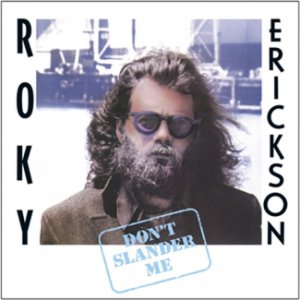 It seems a shame that the album still hasn't found its audience because in the wake of Dead Moon, the Cramps, White Stripes and others, it sounds very much a cornerstone collection.
It seems a shame that the album still hasn't found its audience because in the wake of Dead Moon, the Cramps, White Stripes and others, it sounds very much a cornerstone collection.
The follow-up Don't Slander Me was made under even more trying circumstances: after Evil One the band had gone off on their own because of Erickson's unreliablity, the man hmself had suffered further emotional setbacks and a few years went by before they reassambled.
Ironically the album -- which features various guests including bassist Jack Casady from the Grateful Dead -- comes off as perhaps Erickson's most emotionally coherent release and mixes up styles from his archetypal chunky and rough-edged rock through psychobilly and pyschedelic rockabilly, Buddy Holly, boogie down rock, power pop and even ballads. (You'd be surprised if Jim Steinman and Meat Loaf hadn't heard the melodramatic Burn the Flames complete with Arthur Brown maniacal laughter.)
The most accessible album of Erickson's post-Elevators career, it was also the beginning of the end.
As Joe Nick Patoski says in the liner notes to the LITA reissue, "Of all the recordings he made, this one best showcased the best of Roky Erickson's voice, guitar playing and songs with state-of-the-art sound. Never again would Roky Erickson's music be so tight, so together and so blazingly rocking".
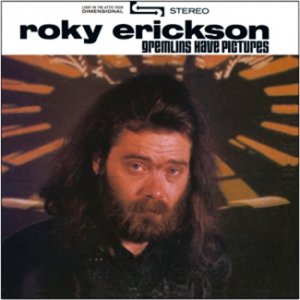 And the final album in this current reissue is the Gremlins Have Pictures compilation which opens with a live version of Night of the Vampire taken from a concert at Austin's punk club Raul's where he was hailed as a hero.
And the final album in this current reissue is the Gremlins Have Pictures compilation which opens with a live version of Night of the Vampire taken from a concert at Austin's punk club Raul's where he was hailed as a hero.
He sounds right on the money, and it is one of four excellent live cuts among the 16 songs.
It is an impressive collection and Erickson -- by this time in the mid Eighties being acclaimed as a proto-punk outsider pioneer -- sounds in remarkable voice and full of fiery commitment.
There's some power balladry mixed with the flat-tack rock'n'roll and also some influences from Dylan and Neil Young in the acosutic material. There is a desperate live version of the Velvet's Heroin.
A diverse collection (Asiaksen says, "I think there might be two different records there, so there's a redeeming quality. You get two or even three records for the price of one"), it captures even more of the breadth of Roky Erickson's wayward talent.
After this period however there was a long journey into darkness and ill-health, a slow climb back in the past decade, a return to performing and then, against the odds, the exceptional True Love Cast Out All Evil album in 2010.
Yep, and Roky not only got on the plane he also got off and played in Auckland. He might not have been clear where he was, but there was something powerful and undiminished in his performance.
He is back in a sense . . . but who really knows where he has been?


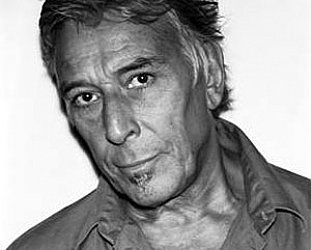
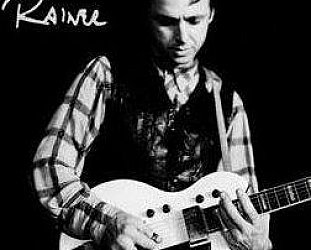
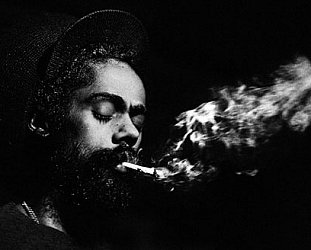

Paul Rowe - Sep 23, 2013
Hi Graham, not to be a pedant, but Jack Casady is better known as bassist in Jefferson Airplane (etc) and Hot Tuna.
SaveI'd also recommend All That May Do My Rhyme from 1995 as a great album. No garage rock, more a country/folk album, with re-recordings of some of his more coherent songs. There was a great single that preceded it too (We Are Never Talking). GRAHAM REPLIES: Being correct isn't being a pedant. Bad brain day for me! You are right, I am wrong. I only ever heard All That May once, you may well be right. Probably are, given your current form and mine!
Paul Rowe - Sep 24, 2013
As the bard once said (and he could have been speaking of the internet) "There's always someone, somewhere, with a big nose, who knows, who'll trip you up and laugh when you fall..."
SaveJust typical to not make a comment for months and then just to pull you up on something!
post a comment